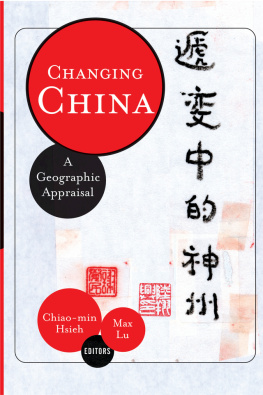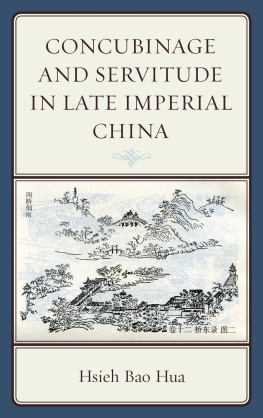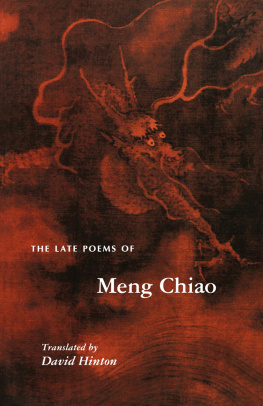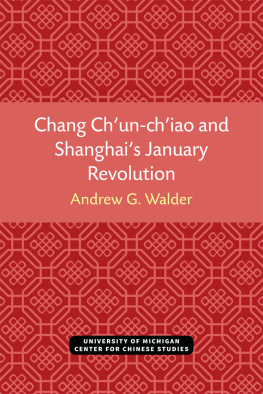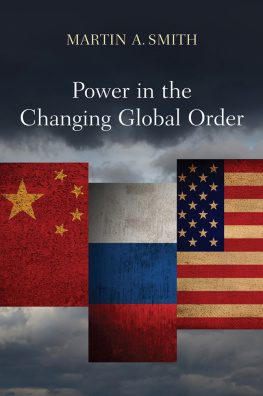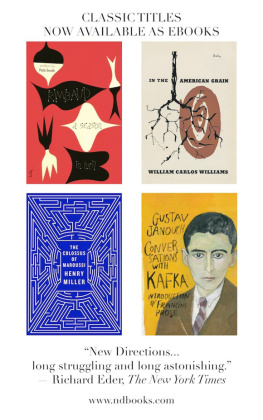First published 2004 by Westview Press
Published 2018 by Routledge
711 Third Avenue, New York, NY 10017, USA
2 Park Square, Milton Park, Abingdon, Oxon OX14 4RN
Routledge is an imprint of the Taylor & Francis Group, an informa business
Copyright 2004 Taylor & Francis
All rights reserved. No part of this book may be reprinted or reproduced or utilised in any form or by any electronic, mechanical, or other means, now known or hereafter invented, including photocopying and recording, or in any information storage or retrieval system, without permission in writing from the publishers.
Notice:
Product or corporate names may be trademarks or registered trademarks, and are used only for identification and explanation without intent to infringe.
Library of Congress Cataloging-in-Publication Data
Changing China: a geographic appraisal / Chiao-min Hsieh and Max Lu, editors.
p. cm.
Includes bibliographical references and index.
ISBN 0-8133-3473-X (alk. paper) ISBN 0-8133-3474-8 (pbk.: alk. paper)
1. ChinaEconomic policy1976-2000. 2. ChinaSocial conditions1976-2000.
I. Hsieh, Chiao-min, 1921- II. Lu, Max.
HC427.92.C343 2003
320.6'0951dc22
2003014826
ISBN 13: 978-0-8133-3474-5 (pbk)
Typeface used in this text: AGaramond
Cliiao-min Hsieh is Professor Emeritus of Geography at the University of Pittsburgh. He has been awarded the Fulbright Research Professorship three times and has been a Senior Fellow of the National Endowment for the Humanities.
Max Lu is Associate Professor of Geography at Kansas State University. He received his Ph.D. from Indiana University. His research concerns population, regional development and the interface between population, resources, environment, and development.
Contributors
Carolyn L. Carrier is an Associate Professor in the Department of Geography, University of Southern California, Los Angeles, U.S.A.
Kam Wing Chan is a Professor in the Department of Geography, University of Washington, Seattle, U.S.A.
Liping Di is a Research Professor and Director of the Laboratory for Advanced Information Technology and Standards (LAITS), George Mason University, Fairfax, Virginia, U.S.A.
C. Cindy Fan is a Professor of geography at the University of California, Los Angeles, U.S.A.
Charles Greer is an Associate Professor in the Department of Geography, Indiana University, Bloomington, U.S.A.
Chiao-min Hsieh is a Professor Emeritus of geography at the University of Pittsburgh, U.S.A.
Sun Sheng Han is an Associate Professor in the Department of Real Estate, School of Design and Environment, National University of Singapore.
Ronald G. Knapp is a Distinguished Professor Emeritus in the Department of Geography, State University of New York at New Paltz, U.S.A.
Chi Kin Leung is a Professor in the Department of Geography, California State University, Fresno, U.S.A.
C. P. Lo is a Professor of geography in the Department of Geography, University of Georgia, Athens, Georgia, U.S A.
Dadao Lu is a Research Professor and former Director of the Institute of Geographical Sciences and Natural Resources Research, Chinese Academy of Sciences, Beijing, China.
Max Lu is an Associate Professor in the Department of Geography at Kansas State University, Manhattan, Kansas, U.S.A.
Kevin Matthews is a graduate student in the Department of Geography and Earth Science at George Mason University, Fairfax, Virginia, U.S.A.
Robert W. McColl is a Professor in the Department of Geography, University of Kansas, Lawrence, Kansas, U.S.A.
Clifton W. Pannell is a Professor of geography and Associate Dean of the Franklin College of Arts and Sciences at the University of Georgia, Athens, Georgia, U.S.A.
Mei-e Ren is a Professor and Honorary Chair in the Department of Geography, Nanjing University, Nanjing, China, and an academician of the Chinese Academy of Sciences.
Jianfa Shen is an Associate Professor in the Department of Geography and research fellow at the Center for Environmental Studies, Chinese University of Hong Kong, Shatin, Hong Kong, China.
Stanley W. Toops is an Associate Professor of geography and the Director of International Studies at Miami University, Oxford, Ohio, U.S A.
Fahui Wang is an Associate Professor in the Department of Geography, Northern Illinois University, DeKalb, Illinois, U.S.A.
Shuguang Wang is an Associate Professor of geography in the School of Applied Geography, Ryerson Polytechnic University in Toronto, Canada.
Yehua Dennis Wei is an Associate Professor in the Department of Geography, University of Wisconsin, Milwaukee, U.S.A.
David Wong is an Associate Professor in the Department of Earth Systems and Geolnformation Sciences, School of Computational Sciences and Geography, George Mason University, Fairfax, Virginia, U.S.A.
Gang Xu is a Visiting Assistant Professor in the Department of Geography, University of Vermont, Burlington, U.S.A.
Runsheng Yin is an Assistant Professor in the Department of Forestry at Michigan State University, U.S.A.
Yi-Xing Zhou is a Professor of geography at Peking University, Beijing, China.
For thousands of years, a great human drama has been unfolding among the broad coastal plains, deep river valleys, and soaring mountains of a land called China. Today, at the dawn of the twenty-first century, the world is witnessing a new era of change in the lives of the people of this enduring civilization. China is undergoing a profound metamorphosis that is unmatched in its long historysimultaneous transitions from a command economy to a market-based one, and from a rural, agricultural society to an urban industrial power. Its double-digit growth rate, emerging market economy, expanding private enterprises, urban construction boom, rural industrialization, internal and external migration, and increasing links to the world economy are all reshaping the landscape of this fascinating realm. The whole world is watching the rapid rise of China and wondering about its intentions and aspirations as a superpower.
These concerns arise from the increasing scope and speed of Chinas impact on the rest of the world, both politically and economically, with one-fifth of the world's population and a territory rich with resources. China's potential influence on world affairs could be matched only by an imaginary megastate combining the nations of the United States of America and Western Europe.
We felt there was a need to examine more systematically and from a geographic perspective the dramatic changes that have taken place in China since the inception of its economic reform in 1978. Geographers have talents that allow them to describe the phenomena of changing China, such as migration, urbanization, rural industrialization, and the disparity between coastal and interior regions. Their sense of place, sympathy for synthesis, emphasis on manland relations, comparative viewpoints of different regions and systems, ability to work and interview in the field, and talent in creating maps and chartsall make geographers well-qualified for such an important task. We are very fortunate to have assembled in Changing China a distinguished team of geographers from around the world, both inside and outside China, to provide a much-needed appraisal of post-reform China and its unprecedented social and demographic changes.


